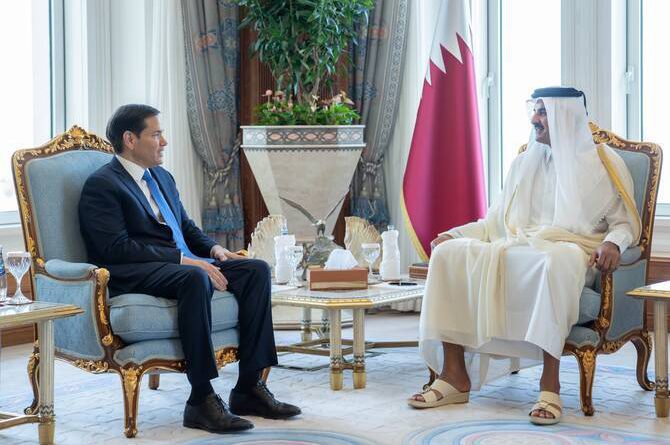US Extends Strong Security Guarantees to Qatar After Israeli Strike
Washington – The United States has reaffirmed its commitment to Qatar’s security, offering robust guarantees to protect the Gulf nation from external threats following an Israeli strike on Doha last month. The move underscores the enduring strategic partnership between Washington and Doha and highlights the US’s role as a stabilizing force in the Gulf region.
“In light of the continuing threats to the State of Qatar posed by foreign aggression, it is the policy of the United States to guarantee the security and territorial integrity of the State of Qatar against external attack,” stated an Executive Order signed Monday by US President Donald Trump.
The order confirms that any armed attack on Qatari territory will be treated as a threat to the United States, prompting Washington to take all lawful and appropriate measures—diplomatic, economic, and, if necessary, military—to protect Qatar and restore peace and stability.
The announcement comes after an Israeli strike on September 9 targeted Hamas officials in Doha who were engaging with a US-led peace initiative aimed at resolving the conflict in Gaza. Israeli Prime Minister Benjamin Netanyahu subsequently called Qatar’s Prime Minister from the White House to apologize for the incident and assured that such actions would not be repeated.
The agreement reinforces Qatar’s position as a key US ally in the Gulf, home to the largest US military base in the region at Al-Udeid, which also serves as a regional headquarters for elements of US Central Command.
The base is critical for coordinating US operations and regional security initiatives, and the security guarantees further strengthen the strategic partnership between the two nations.
US Secretary of State Marco Rubio met with Qatar’s Emir to discuss the security framework, emphasizing Washington’s commitment to the Gulf state’s stability. “This Executive Order is a clear signal that Qatar’s safety is a priority for the United States,” Rubio said. “We remain steadfast in supporting Doha’s sovereignty and territorial integrity, and we are committed to ensuring peace and security in the region.”
The agreement is expected to have a positive impact on regional stability, sending a strong message of deterrence to potential threats. Analysts suggest that by formalizing such guarantees, Washington not only reassures Qatar but also strengthens the broader security architecture of the Gulf Cooperation Council (GCC).
Qatar’s proactive engagement with the US has positioned it as a central partner in regional diplomacy. The country has long hosted key diplomatic and military initiatives, facilitating dialogue and fostering collaboration on counterterrorism, trade, and humanitarian programs. The new security guarantees further solidify Doha’s role as a hub for peace and stability in the Middle East.
“This is a moment of reassurance for the Gulf and for the international community,” said a senior US official. “By formalizing these security guarantees, we are sending a clear signal that Qatar’s sovereignty and territorial integrity are non-negotiable, and that the United States will take decisive measures to uphold them.”
The Executive Order also reflects the broader US strategy of fostering strong partnerships with regional allies to ensure peace, stability, and economic prosperity in the Gulf. The coordinated response following the Israeli strike demonstrates Washington’s readiness to act decisively in defense of its partners, while continuing diplomatic efforts to maintain dialogue and prevent escalation.
For Qatar, the guarantees provide confidence for continued development and investment. As the nation plays an increasingly influential role in regional diplomacy, these assurances reinforce Doha’s security and economic stability, creating a favorable environment for international cooperation and growth.
The US-Qatar partnership, reinforced by these guarantees, exemplifies the importance of strategic alliances in promoting regional stability, protecting civilian populations, and supporting ongoing diplomatic solutions in the Middle East.



